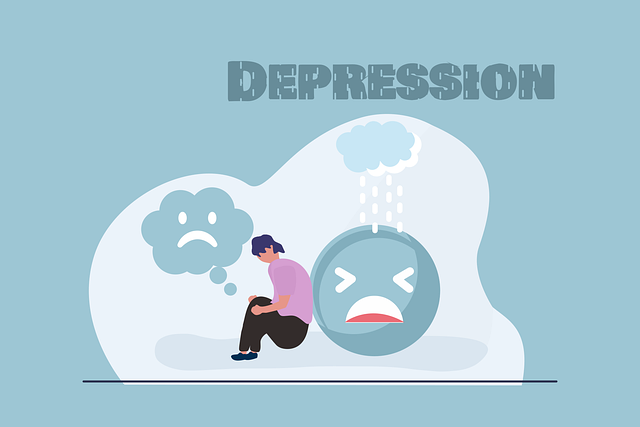Crisis Intervention Teams (CITs) require specialized training, like Centennial EMDR Therapy, to effectively handle complex emotional crises. This therapy combines evidence-based techniques with body's natural healing abilities for trauma resolution. Through immersive training, including role-playing and cultural sensitivity education, CIT members gain empathy, resilience, and burnout prevention skills. Integrating innovative methods like virtual reality simulations can enhance future training, addressing challenges posed by dynamic crisis scenarios and diverse organizational contexts.
“In today’s complex social landscape, effective crisis intervention is more vital than ever. This article explores the critical role of Crisis Intervention Teams (CITs) in mitigating mental health crises and their profound impact on communities. We delve into the significance of specialized training, particularly for EMDR therapists, as a game-changer in crisis management. Centennial EMDR Therapy, with its unique techniques, emerges as a powerful tool. Additionally, we analyze the essential components of comprehensive CIT training programs and discuss the evolving future of this life-saving initiative.”
- Understanding Crisis Intervention Teams: Their Role and Impact
- The Importance of Specialized Training for EMDR Therapists
- Centennial EMDR Therapy: Unlocking Effective Techniques
- Components of a Comprehensive Crisis Team Training Program
- Benefits, Challenges, and Future Directions in Crisis Intervention Training
Understanding Crisis Intervention Teams: Their Role and Impact

Crisis Intervention Teams (CITs) play a pivotal role in mental healthcare, offering swift and specialized support during crises. These teams are designed to respond to individuals experiencing severe emotional distress, ensuring immediate stability and promoting long-term recovery. CITs often include trained professionals like psychologists, social workers, and peer supporters, who collaborate to provide comprehensive care.
The impact of CITs is profound, especially in mitigating burnout among healthcare providers while fostering cultural sensitivity in mental healthcare practice. By integrating evidence-based therapies, such as Centennial EMDR Therapy, into their training programs, these teams enhance their ability to assist diverse populations. Well-designed Mental Health Education Programs focus on cultivating empathy, understanding complex cultural contexts, and promoting resilience, ensuring that CIT members are equipped to handle a wide range of crises effectively.
The Importance of Specialized Training for EMDR Therapists

Specialized training is an indispensable component for any crisis intervention team, with Centennial EMDR therapy being a notable example. In today’s fast-paced and demanding world, emergency responders often face situations that require more than general first aid or counseling skills. They need to be equipped with the latest techniques in Eye Movement Desensitization and Reprocessing (EMDR) therapy, which has been recognized as an effective approach for treating traumatic experiences. This specialized training enables therapists to navigate complex emotional landscapes with precision and care, fostering a supportive environment that aids in burnout prevention while enhancing their clients’ ability to manage mood effectively.
By investing in comprehensive EMDR therapist training programs, teams can significantly improve their crisis intervention capabilities. These programs delve into the intricacies of trauma healing, teaching empathy-building strategies tailored for high-stress scenarios. Such strategies not only strengthen the therapeutic bond but also empower responders to provide life-altering support during critical moments, ensuring that individuals in need receive the specialized care they deserve.
Centennial EMDR Therapy: Unlocking Effective Techniques

Centennial EMDR Therapy stands as a beacon of hope and healing in crisis intervention, offering powerful techniques to support individuals navigating traumatic experiences. This therapeutic approach, rooted in Eye Movement Desensitization and Reprocessing (EMDR), has evolved to provide an evidence-based framework for promoting emotional well-being. By combining targeted interventions with the body’s inherent ability to heal, Centennial EMDR Therapy empowers clients to process and resolve deep-seated traumas effectively.
The program delves into advanced conflict resolution techniques, enabling participants to gain invaluable skills in handling high-stress situations. It prioritizes burnout prevention strategies for healthcare providers, recognizing the importance of self-care in an often demanding profession. Through immersive training, individuals learn to facilitate healing journeys, not only for their clients but also for themselves, fostering a more resilient and compassionate approach to crisis intervention.
Components of a Comprehensive Crisis Team Training Program

A comprehensive crisis intervention team training program should encompass several key components to effectively prepare professionals for managing high-stakes situations. Firstly, it must include rigorous simulations and role-playing exercises that mimic real-world crises, allowing participants to practice their skills in a safe environment. These scenarios should cover a wide range of potential incidents, from suicide attempts to mass shootings, ensuring the team is versatile and adaptable.
Additionally, integrating Cultural Sensitivity in Mental Healthcare Practice is vital to foster an inclusive and effective support system. Training should include education on unconscious biases, cultural competencies, and strategies for navigating diverse backgrounds and beliefs. This aspect empowers crisis teams to provide sensitive and tailored interventions, especially in communities with unique needs. Self-Awareness Exercises and Mind Over Matter Principles can also play a significant role, helping individuals manage their own stress and emotions during high-pressure situations, thereby enhancing their ability to support others.
Benefits, Challenges, and Future Directions in Crisis Intervention Training

Crisis intervention team training programs play a pivotal role in equipping professionals with the skills to handle high-stress situations effectively. These programs offer numerous benefits, including enhanced emotional well-being promotion techniques that can be particularly impactful when coupled with Centennial EMDR Therapy. By fostering inner strength development through comprehensive crisis intervention guidance, organizations can create more resilient and equipped teams. This not only improves individual coping mechanisms but also leads to better outcomes for those in need.
However, challenges remain. The dynamic nature of crises demands constant updates and adaptations in training curricula. Additionally, ensuring the practical application of skills learned during these programs can be difficult due to varying organizational contexts. Looking ahead, future crisis intervention training should integrate innovative approaches like virtual reality simulations and ongoing peer support networks to address these hurdles. Such advancements aim to make training more engaging and effective, ultimately enhancing the capability of teams to provide swift and compassionate assistance.
Crisis intervention team training programs are indispensable for fostering effective support systems, especially with techniques like Centennial EMDR Therapy. As these teams gain prominence, comprehensive training that encompasses specialized EMDR therapist education, practical scenario simulations, and continuous evaluation becomes increasingly vital. By investing in robust crisis team training, we not only enhance the skills of practitioners but also ensure better outcomes for those facing crises, ultimately revolutionizing mental health intervention practices.













